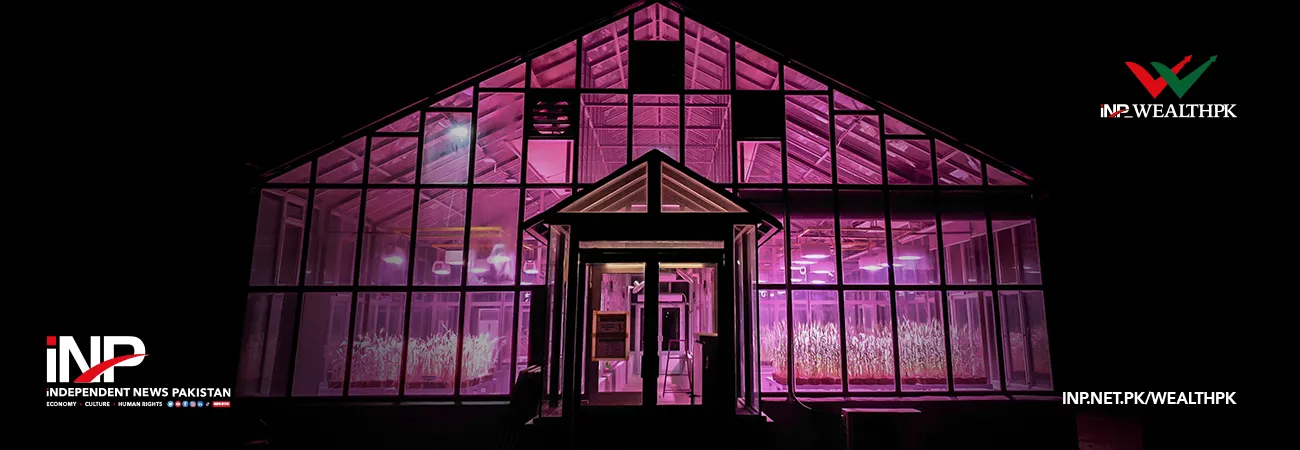INP-WealthPk
Jawad Ahmed
ISLAMABAD, June 07 (INP-WealthPK): Revenues of Fauji Foods Limited (FFL) increased by 1.1% to Rs2.4 billion in the first quarter (January-March) of calendar year 2022 from Rs2.3 billion in the same period of last year
Registered as a public company, FFL is the subsidiary of Fauji Fertilizer bin Qasim Limited, and is principally engaged in processing and sale of toned milk, milk powder, fruit juices, allied dairy and food products, reports WealthPK.
During the period, the company registered sustainable revenue growth despite a challenging inflationary environment. The company achieved highest-ever sale of Rs252 million only in food services sector in a single month of March 2022.
However, due to rising inflation, the company's input and overhead costs remained under pressure, as a result, its gross profit declined to Rs169 million, or 35.8%, during this year’s quarter compared to the previous year's Rs263 million.
Quarterly Financial Performance
[caption id="attachment_68042" align="aligncenter" width="696"] Source: Company Annual Report[/caption]
The loss after payment of tax for the quarter stood at Rs499 million compared to a loss of Rs347 million in the corresponding period of last year.
Future Outlook
The company’s gradual transformation to value-added categories has successfully started as a series of margin accretive launches are planned to build a sustainable portfolio.
To reduce costs, structural changes are being implemented in the 'way of doing business' that harnesses industry experience. This will not only improve the margin structure fundamentally but also prepare the business for predicted inflationary pressure.
Shareholding pattern
[caption id="attachment_68041" align="aligncenter" width="696"]
Source: Company Annual Report[/caption]
The loss after payment of tax for the quarter stood at Rs499 million compared to a loss of Rs347 million in the corresponding period of last year.
Future Outlook
The company’s gradual transformation to value-added categories has successfully started as a series of margin accretive launches are planned to build a sustainable portfolio.
To reduce costs, structural changes are being implemented in the 'way of doing business' that harnesses industry experience. This will not only improve the margin structure fundamentally but also prepare the business for predicted inflationary pressure.
Shareholding pattern
[caption id="attachment_68041" align="aligncenter" width="696"] Source: Company Annual Report[/caption]
As of December 31, 2021, nearly 76% of the company's shares were held by affiliated entities and associated parties. The general public owned almost 15% of the total shares, followed by joint stock firms, which possessed nearly 5%. Insurance companies owned 3.35%, while roughly 1% is split among the remaining stakeholder categories.
The board of directors, the chief executive officer, their spouses and minor children owned negligible percentage of the company’s shares.
Company Turnover
Since the calendar year 2016, the company's top line has largely been expanding at more variable rates, while profit margins have been modestly fluctuating between 2015 and 2018; there was a major decline in 2019, followed by a rise again in 2020 and 2021.
The company's revenues climbed over 107% year-on-year to Rs7 billion in 2017, up from Rs3.37 billion in 2016. However, the company could not improve profitability as the rising cost of production ate up over 97% of the revenues.
Source: Company Annual Report[/caption]
As of December 31, 2021, nearly 76% of the company's shares were held by affiliated entities and associated parties. The general public owned almost 15% of the total shares, followed by joint stock firms, which possessed nearly 5%. Insurance companies owned 3.35%, while roughly 1% is split among the remaining stakeholder categories.
The board of directors, the chief executive officer, their spouses and minor children owned negligible percentage of the company’s shares.
Company Turnover
Since the calendar year 2016, the company's top line has largely been expanding at more variable rates, while profit margins have been modestly fluctuating between 2015 and 2018; there was a major decline in 2019, followed by a rise again in 2020 and 2021.
The company's revenues climbed over 107% year-on-year to Rs7 billion in 2017, up from Rs3.37 billion in 2016. However, the company could not improve profitability as the rising cost of production ate up over 97% of the revenues.
 In 2018, the company achieved a turnover of Rs7.649 billion at a growth rate of 8.48%. Loss-after-taxation was reported at Rs2.8 billion compared to Rs2.2 billion in the previous year. Because of this, per share price declined to Rs5.39 from Rs9.22 in the previous year.
The increase in net losses was due to higher input costs owing to fluctuations in foreign currency exchange rates, and financing costs caused by increase in policy rate by the State Bank of Pakistan.
In 2018, the company achieved a turnover of Rs7.649 billion at a growth rate of 8.48%. Loss-after-taxation was reported at Rs2.8 billion compared to Rs2.2 billion in the previous year. Because of this, per share price declined to Rs5.39 from Rs9.22 in the previous year.
The increase in net losses was due to higher input costs owing to fluctuations in foreign currency exchange rates, and financing costs caused by increase in policy rate by the State Bank of Pakistan.
 In 2019; the company’s net sales declined to Rs5.7 billion from Rs7.6 billion in 2018. Loss-after-taxation was Rs5.7 billion compared to Rs2.8 billion in the previous year.
Sluggish business activity, which was attributed to market apprehension and resistance to government revenue-generating measures at the retail level, high input and financing costs, and additional sales support to offset market share losses due to price increase initiative in the first half of the year, resulted in lower-than-expected sales and capacity losses.
In 2019; the company’s net sales declined to Rs5.7 billion from Rs7.6 billion in 2018. Loss-after-taxation was Rs5.7 billion compared to Rs2.8 billion in the previous year.
Sluggish business activity, which was attributed to market apprehension and resistance to government revenue-generating measures at the retail level, high input and financing costs, and additional sales support to offset market share losses due to price increase initiative in the first half of the year, resulted in lower-than-expected sales and capacity losses.
 Revenues rebounded in 2020, increasing by over 28% to Rs7.4 billion from Rs5.7 billion during the previous year. This was accomplished by preserving supply chains and altering distribution networks, as well as introducing value-added items, including cheese, butter and unsalted butter.
Revenues rebounded in 2020, increasing by over 28% to Rs7.4 billion from Rs5.7 billion during the previous year. This was accomplished by preserving supply chains and altering distribution networks, as well as introducing value-added items, including cheese, butter and unsalted butter.
 In 2021, FFL picked pace and the trajectory showed a very encouraging trend. During the period, the company’s net sales surged by 16.5% to Rs8.59 billion from Rs7.4 billion in the previous year. The company’s operational cost also posted a decline of 59%, further reinforcing the growth trajectory and fortifying financial health of the company.
In 2021, gross profit of the company recorded Rs921 million compared with the gross profit of Rs62 million in 2020. The optimal use of value chain and fundamental business model improvement aided in driving effectiveness and operational efficiency.
In 2021, FFL picked pace and the trajectory showed a very encouraging trend. During the period, the company’s net sales surged by 16.5% to Rs8.59 billion from Rs7.4 billion in the previous year. The company’s operational cost also posted a decline of 59%, further reinforcing the growth trajectory and fortifying financial health of the company.
In 2021, gross profit of the company recorded Rs921 million compared with the gross profit of Rs62 million in 2020. The optimal use of value chain and fundamental business model improvement aided in driving effectiveness and operational efficiency.













